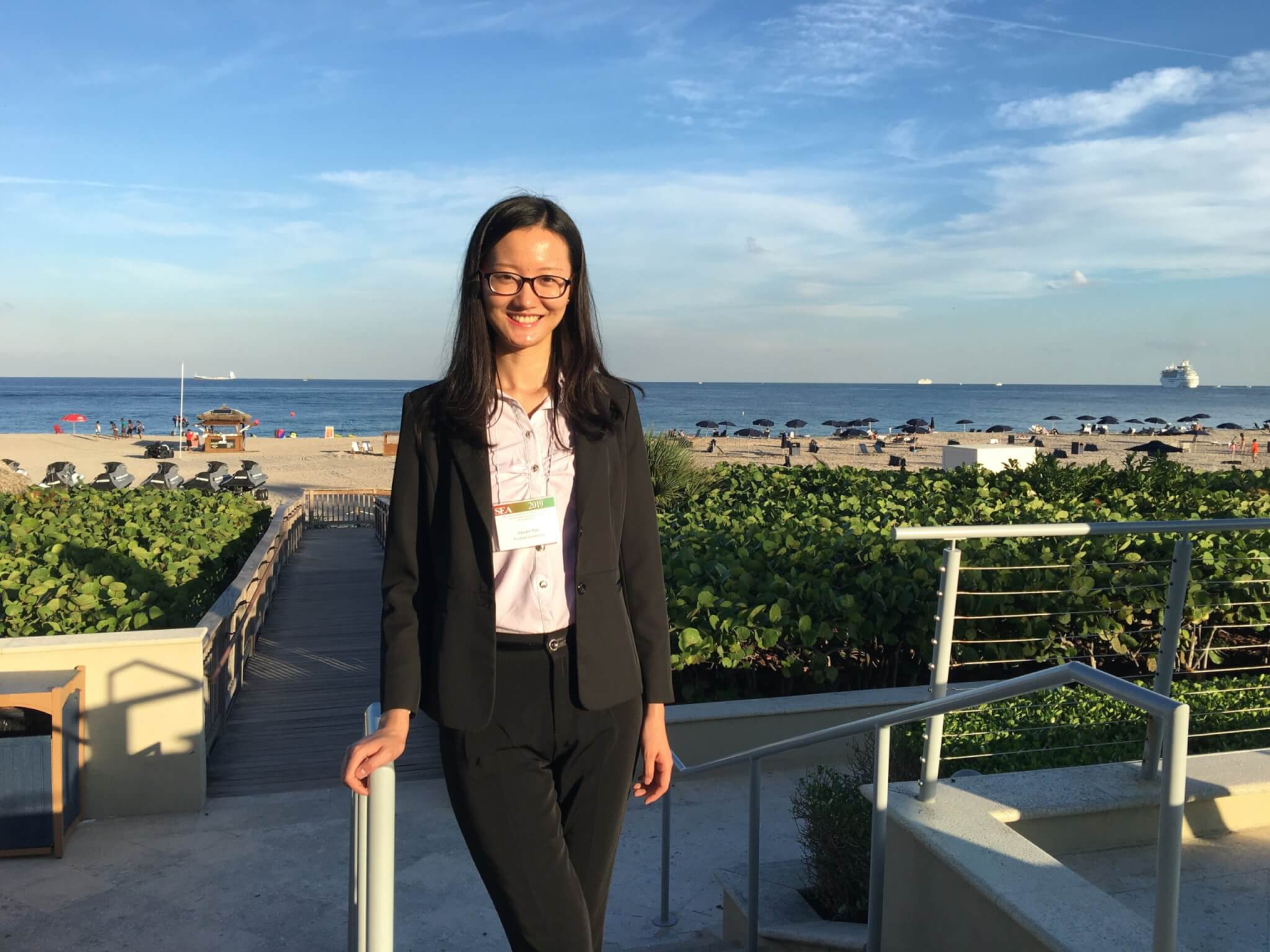Agricultural economics student uses research as creative outlet
Do California residents choose to adopt solar panels because their neighbors do?
How do social pressures influence fertility decisions in rural China?
Is the production of all-electric vehicles impacted by governmental policies and imperfectly competitive market structures?
Jixuan (Edie) Yao’s research addresses questions others may not think to associate with agricultural economics. And to answer them, Yao prefers to let the data speak for her.
“I don’t want to argue.” Instead, Yao said she would rather use solid research to convince people “in a silent, but powerful way.”
Yao was raised in Linzi, a small city 500 miles north of Shanghai University of Finance and Economics where she began her college career. Yao enjoys pure theoretical math and physics, but she chose to study actuarial science when others advised her to choose a major “more conducive to finding a job.”
An internship at an insurance company helped her realize the fit was not right. While Yao found the salary offered by the highly-regulated field appealing, there was little room for creativity.
“I could not envision sitting in a small cubicle in an office for the rest of my career.”
Yao joined a master’s program in applied economics and management at Cornell University. There, her research focused on crop insurance.
“I find research is very creative,” said Yao. “It confirmed that I wanted to do a Ph.D.”
Yao searched American university websites for her interests amid faculty research expertise and decided to study agricultural economics at Purdue. She began her doctoral work under the advisorship of Michael Delgado, associate professor of agricultural economics, in 2016.
Yao’s research focuses on modeling social and market dynamics. She develops mathematical representations of the topics she finds most interesting: household behavior and environmental protection. “My research is about living a better life and caring for the environment,” explained Yao.
She also taught Mathematical Tools for Agricultural and Applied Economics, a core component of the department’s master’s program.
“For me it’s fun,” Yao said. “My role is to fill a gap for master’s students by teaching them all the math knowledge you need to learn to write a thesis. It’s a summary class — one semester, but a lot of content.”
Yao intends to continue in academia through a postdoc or faculty position.
“I used to worry a lot whether I could find a job,” Yao recalled. “My advisor encouraged me to focus on what I really like and be confident.”






